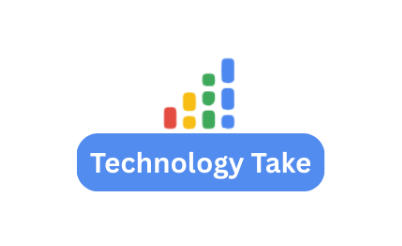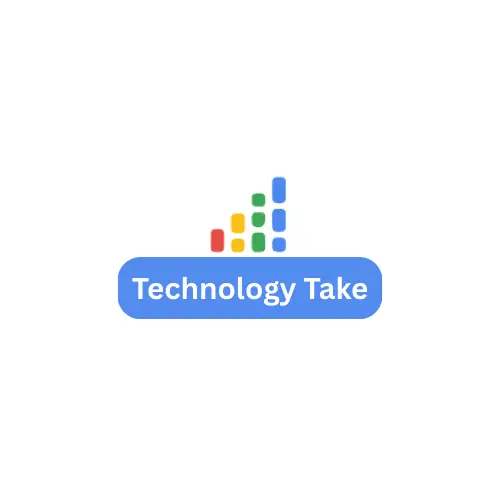The Samsung-Perplexity AI Deal
Reshaping Mobile Intelligence and Challenging Google’s Dominance
The global smartphone landscape stands poised for an AI-powered transformation as Samsung Electronics nears a comprehensive partnership with Perplexity AI, signaling one of the most significant shifts in mobile technology strategy in recent years. According to exclusive reports from Bloomberg and corroborated by multiple industry sources, this wide-ranging deal encompasses strategic investment, deep software integration, and a fundamental reimagining of the AI assistant experience on Samsung’s flagship Galaxy devices. At stake is Google’s longstanding dominance in mobile search and AI, as Samsung aims to position Perplexity—an AI startup valued at $14 billion—as the default assistant on the upcoming Galaxy S26 series, integrate its technology into Samsung Internet and Bixby, and collaborate on future AI operating systems . This Samsung-Perplexity partnership represents not merely a vendor change but a strategic realignment with profound implications for users, developers, and the balance of power in the AI ecosystem.
The urgency of this move is underscored by Samsung’s planned timeline: an official announcement could come as early as late 2025, with implementation targeting the Galaxy S26 launch in the first half of 2026 . Simultaneously, Samsung is positioned to become “one of the biggest investors” in Perplexity’s upcoming $500 million funding round, cementing a financial alliance alongside the technical integration . For consumers, this signals a future where Galaxy devices may offer Perplexity’s signature “answer engine” – which provides conversational responses with citations instead of traditional links – as the default interaction layer for search, task assistance, and device control, potentially sidelining Google Gemini, which currently holds default status on Samsung’s Android devices . The Samsung-Perplexity partnership thus transcends a typical OEM-software agreement, embodying Samsung’s ambition to reduce dependence on Google and emulate Apple’s multi-partner AI strategy while injecting innovation into its own ecosystem.
Strategic Integration: Where Perplexity Meets Galaxy Hardware
1. AI Assistant Supremacy on the Galaxy S26
The cornerstone of the deal involves positioning Perplexity as the default or primary assistant option on the Galaxy S26 series. This would mark a dramatic shift from the current Galaxy S25 lineup, where Google’s Gemini is deeply embedded through features like the Gemini-powered overlay, integration with Samsung Calendar/Notes, and chain command capabilities 8. Under the proposed arrangement, users setting up a new S26 would encounter Perplexity preloaded as the go-to assistant, though reports suggest Samsung may retain Gemini as a secondary option, offering choice while fundamentally altering the default experience . Perplexity’s assistant distinguishes itself through its ability to handle complex, research-oriented queries with source attribution and execute transactional tasks like restaurant bookings—a capability recently demonstrated in its Motorola partnership . This Samsung-Perplexity partnership prioritizes depth of utility over basic web search, potentially giving Samsung a unique selling proposition against competitors like Apple’s Siri and Google’s own Pixel devices.
2. Browser and Bixby Transformation
Beyond the assistant, Samsung plans deep integrations across its software ecosystem:
- Samsung Internet Integration: Perplexity’s search technology would be embedded directly into Samsung’s native browser, replacing or supplementing Google Search. This directly challenges Google’s revenue stream from default search placements and offers users an alternative that emphasizes summarized, citation-backed answers over traditional link-based results . Industry analysts note that Google pays Samsung an “enormous sum” for default search privileges—a financial arrangement now under threat .
- Bixby Enhancement: Once a cornerstone of Samsung’s ecosystem, Bixby has lagged behind rivals in capability and adoption. The deal includes discussions about “weaving Perplexity’s technology” into Bixby, potentially reviving Samsung’s virtual assistant with advanced natural language understanding and knowledge retrieval capabilities sourced from Perplexity’s infrastructure . This hybrid approach could leverage Bixby’s device control strengths while outsourcing complex knowledge queries to Perplexity, creating a more competitive offering without fully abandoning Samsung’s AI development. The Samsung-Perplexity partnership thus extends beyond app placement into re-engineering core software interactions.
Samsung’s Strategic Calculus: Diversification, Differentiation, and Data
Reducing Reliance on Google
Samsung’s pursuit of Perplexity reflects a deliberate strategy to diversify its AI dependencies. Historically, Samsung’s Android devices have relied heavily on Google for core services including search (Google Search), AI (Gemini), and mobile services (Play Store, Gmail). This dependency creates business model vulnerabilities—particularly as Google faces intensified antitrust scrutiny over its alleged monopolization of default placements on Android devices 813. By partnering with Perplexity, Samsung gains negotiating leverage with Google, reduces licensing costs, and insulates itself from regulatory actions targeting Google’s mobile dominance. As Bloomberg notes, this mirrors Apple’s approach of working with multiple AI providers (including rumored talks with Perplexity itself) rather than relying solely on one partner 17. The Samsung-Perplexity partnership is fundamentally about sovereignty over the user experience and the underlying data streams that fuel AI development.
Competitive Differentiation in a Saturated Market
With smartphone innovation increasingly concentrated in software and AI, Samsung views Perplexity as a key differentiator against competitors like Apple’s iPhone and Google Pixel. Perplexity’s answer engine—with its conversational tone, citation transparency, and multi-step task capabilities—offers a distinct alternative to Gemini’s or Siri’s more traditional results. Early integrations on Motorola devices showcase features like operating on external displays when folded (relevant for Samsung’s Flip/Fold series) and contextual “Related Questions” for deeper topic exploration . Embedding this experience natively across Galaxy devices could attract power users, researchers, and professionals seeking more than basic voice commands. Moreover, Samsung’s investment stake in Perplexity provides a financial upside if the startup’s valuation rises post-integration . This Samsung-Perplexity partnership positions Samsung as an innovator rather than a Google-dependent follower in the AI arms race.
Market Implications: Shaking the Mobile AI Hierarchy
Challenging Google’s Mobile Monopoly
The partnership strikes directly at Google’s core revenue model. Google reportedly pays Apple over $18 billion annually to be Safari’s default search engine—a similar, albeit undisclosed, arrangement likely exists with Samsung . By demoting Gemini and Google Search from their default positions, Samsung threatens not only Google’s search ad revenue but also its user data acquisition pipeline. Perplexity’s rise as a white-label AI provider for major OEMs—first Motorola, now Samsung, with Apple reportedly exploring integrations—suggests a broader industry realignment away from Google’s ecosystem . While Google retains Android’s underlying control, the erosion of its default service advantages could weaken its grip on the mobile information ecosystem. The Samsung-Perplexity partnership thus represents a pivotal test case for whether alternative AI architectures can disrupt Google’s entrenched position.
Elevating Perplexity to Industry Heavyweight
For Perplexity, the Samsung deal represents a quantum leap in scale and credibility. Currently valued at $14 billion amid its $500 million funding round, Perplexity’s integration across Samsung’s hundreds of millions of annual device shipments would exponentially expand its user base and data access . Unlike its Motorola partnership—which added Perplexity to devices with smaller market share—Samsung’s global dominance (holding 4 of 2025’s top-selling phone spots) offers unprecedented distribution 811. This positions Perplexity as a legitimate challenger to OpenAI’s ChatGPT, Anthropic’s Claude, and Google Gemini in the consumer AI space. However, this scaling brings challenges: maintaining response quality under massive user loads, navigating content licensing complexities at scale, and avoiding the misinformation pitfalls that have plagued other AI models. The Samsung-Perplexity partnership transforms Perplexity from a niche player into an infrastructure provider with responsibilities matching its ambitions.
Challenges and Uncertainties
Technical Execution and User Transition
Integrating Perplexity seamlessly into Samsung’s ecosystem poses significant technical hurdles. Unlike Google services, which benefit from decades of Android optimization, Perplexity must flawlessly interface with Samsung’s hardware sensors, Bixby’s legacy architecture, and the Android OS without compromising performance or battery life. User transition represents another risk—Gemini enjoys brand recognition, and shifting users to an unfamiliar assistant could cause friction. Samsung may mitigate this by making Perplexity a default option rather than an exclusive assistant, preserving user choice while steering adoption . Early implementation will be scrutinized on the upcoming Galaxy Z Fold 7 and Flip 7, though full integration is targeted for the S26 .
Regulatory and Competitive Countermeasures
Google is unlikely to cede its Samsung relationship without response. Potential countermeasures include:
- Financial Incentives: Increasing payments to Samsung to retain default status for Gemini or Search.
- Exclusive Feature Access: Withholding new Android or Gemini features from Samsung if Perplexity becomes default.
- Legal Challenges: Leveraging contractual agreements or intellectual property claims to delay or limit Perplexity integrations .
Regulators may also scrutinize the deal, particularly given ongoing DOJ investigations into Google’s alleged Android monopolization. Ironically, a successful Samsung-Perplexity deal could aid Google’s defense by demonstrating viable competition in default placements 8.
The Future: AI Agents, Operating Systems, and Ecosystem Warfare
Looking beyond 2026, Samsung and Perplexity have discussed even more ambitious collaborations:
- AI-Infused Operating System: Early talks explore co-developing an OS “that can tap into functionality from Perplexity and a range of other AI assistants,” suggesting a modular, agent-based architecture beyond current Android or Tizen .
- Cross-Platform AI Agent App: Plans include an app allowing Perplexity to interact with other AI assistants (e.g., Meta, Microsoft), positioning Samsung devices as hubs for multi-agent ecosystems .
- Bixby’s Evolution: Rather than replacing Bixby, Perplexity could become its “brain” for knowledge tasks, allowing Bixby to focus on device control—a hybrid model maximizing both platforms’ strengths .
These initiatives suggest Samsung envisions a post-Google ecosystem where AI agents—not apps or traditional search—form the primary user interface. This paradigm shift could ultimately redefine how users interact with mobile technology.
Conclusion: A Watershed Moment for Mobile AI
The impending Samsung-Perplexity partnership transcends a typical vendor agreement, embodying a strategic inflection point in the smartphone industry. For Samsung, it offers reduced dependence on Google, software differentiation in a commoditized market, and a stake in a rapidly growing AI disruptor. For Perplexity, it provides unprecedented scale, validation, and resources to challenge established giants. For consumers, it promises new interaction paradigms centered on conversational, citation-backed assistance rather than keyword searches and blue links.
Yet significant execution risks remain—technical integration hurdles, user acceptance uncertainties, and Google’s inevitable countermoves. If successful, this collaboration could accelerate the fragmentation of mobile AI ecosystems, with Samsung/Perplexity, Apple (potentially with its own AI partners), and Google forming distinct camps. The Galaxy S26, expected in early 2026, will serve as the ultimate litmus test for whether this ambitious vision can reshape consumer expectations and competitive dynamics in the AI-driven mobile landscape. As Samsung finalizes what Bloomberg describes as a “wide-ranging deal” 5, the industry watches closely, aware that its outcome could redefine power structures in mobile technology for the next decade.








I would like to thnkx for the efforts you have put in writing this site. I’m hoping the same high-grade blog post from you in the upcoming as well. In fact your creative writing skills has inspired me to get my own site now. Actually the blogging is spreading its wings fast. Your write up is a great example of it.